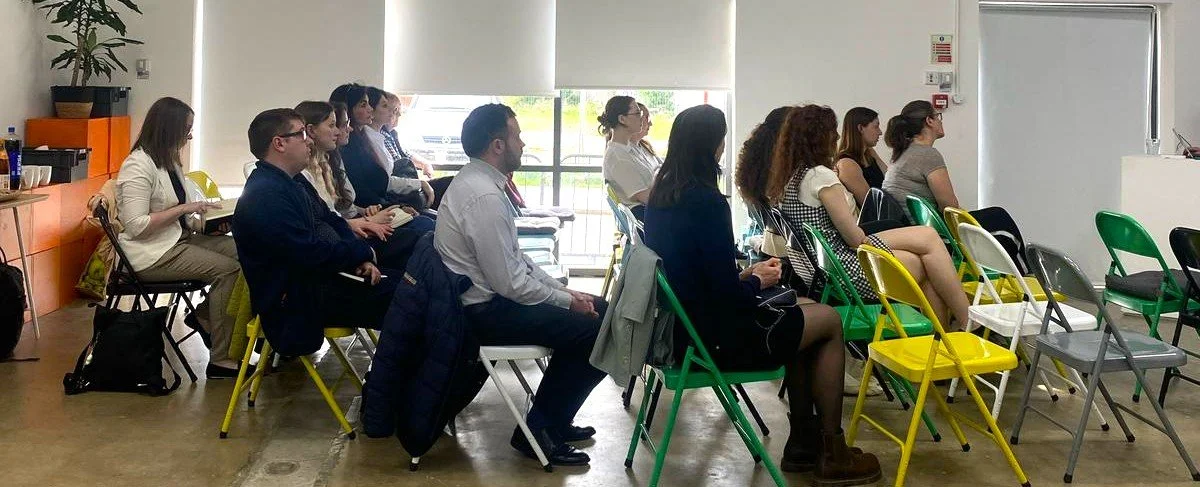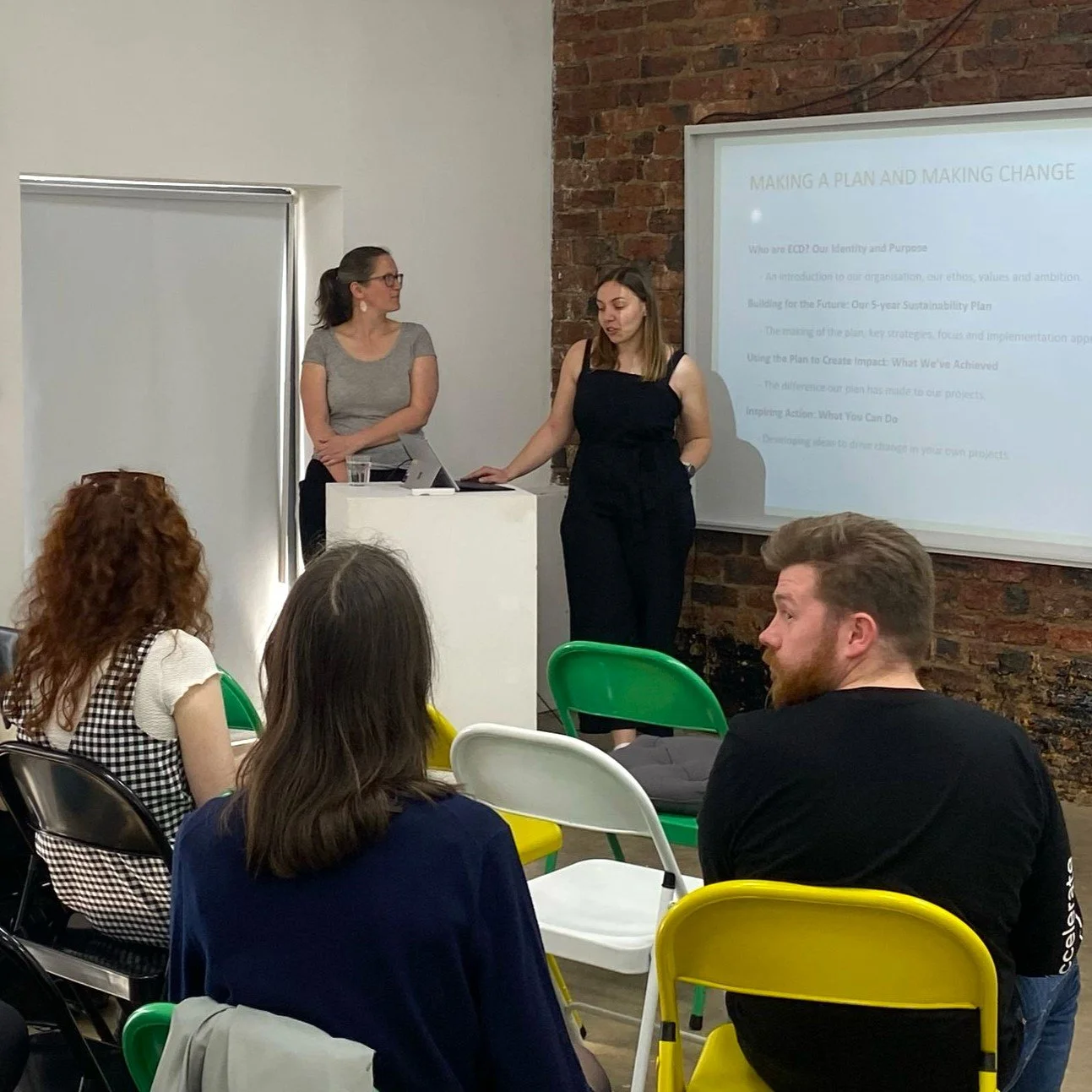GIA Talks and Tours 02 - Practice Spotlight : ECD Architects
Creating a 5 year sustainability plan
The Glasgow Institute of Architects followed up on the first successful talk with a second sustainability event focused on creating sustainable plans. The engaging and thought-provoking session was led by Lizzy Westmacott, Associate Director and Regional Head of Sustainability, and Chloë Yuill, Architect and Certified Passivhaus Designer, from ECD Architects. ECD, a practice of over 60 employees spread across three UK studios, is widely recognised for its consistent commitment to sustainability, with over 20 certified green projects in its portfolio. Their talk, “Making a Plan and Making Change,” offered an honest look at how architects can take strategic, practical steps toward decarbonising their work.
The foundation of ECD’s five-year sustainability strategy lies in reflection and intention. The team began by evaluating how they had been working and compared it to how they wanted to work moving forward. By breaking their targets into specific categories, they were able to set clear, achievable goals that aligned with their values. Training and upskilling were key priorities. Team members were encouraged to develop technical competencies, such as thermal bridge calculation, and to pursue sustainability-focused knowledge in areas they were genuinely interested in. This was paired with a strong culture of internal knowledge sharing, supported by a regular in-office sustainability newsletter and open dialogue.
Client collaboration was also central to ECD’s approach. Recognising that different clients have varying levels of sustainability knowledge, they emphasised the importance of meeting clients where they are and communicating in ways that build trust and clarity. They also highlighted the need for thorough post-occupancy evaluation and proper handovers, especially when working with residential tenants, to ensure that systems are used correctly and performance outcomes are achieved.
A good example of ECD’s approach can be seen in their project at Thornhill Primary School in Bedfordshire. ECD led the expansion project that went on to become the first certified Passivhaus school in the UK. Interestingly, the client had not originally intended to pursue Passivhaus standards. However, ECD used the Passive House Planning Package (PHPP) to model the energy performance and demonstrated that the savings in running costs would be equivalent to the salary of a teaching assistant. This compelling, evidence-based argument ultimately persuaded the client to invest in a higher-performing, lower-carbon solution.
To actively engage the audience and encourage reflection on their own practices, Chloë and Lizzy wrapped up the session with a fun and interactive group activity. Attendees were divided into smaller groups and given post-it notes to write down ideas in response to key prompts about how they could make their current or future projects more sustainable. The exercise sparked lively discussions, collaborative thinking, and visible energy in the room as architects from different backgrounds shared insights and challenges.
Throughout the session, the message was clear: real sustainability requires everyone on the project to be engaged and invested, from architects and clients to contractors and occupants. Chloë and Lizzy demonstrated the impact that passionate individuals can have within a supportive and mission-driven practice. The event was a timely reminder that with a clear plan and a collective commitment, meaningful change is possible.
Actions for Architects:
Agree ‘end goal’ targets for sustainability at RIBA Stage 0-1 and incorporate into the project brief.
Manage and monitor sustainability targets at key milestones in RIBA Stages, and regularly engage with stakeholders.
Reflect on internal processes and aspirations within architectural practices, and develop a company roadmap towards Net Zero.
Encourage learning opportunities within practices, both formal and informal, and dedicate time to sharing skills between colleagues.
Collaboration and knowledge sharing across disciplines to improve mass up-skilling within the industry.
GIA Next Steps:
The GIA aims to encourage Heads of Sustainability across the sector to engage with the GIA Sustainability Committee and the RIAS Sustainability Working Group, a new chapter dedicated to improving cross-collaboration.


